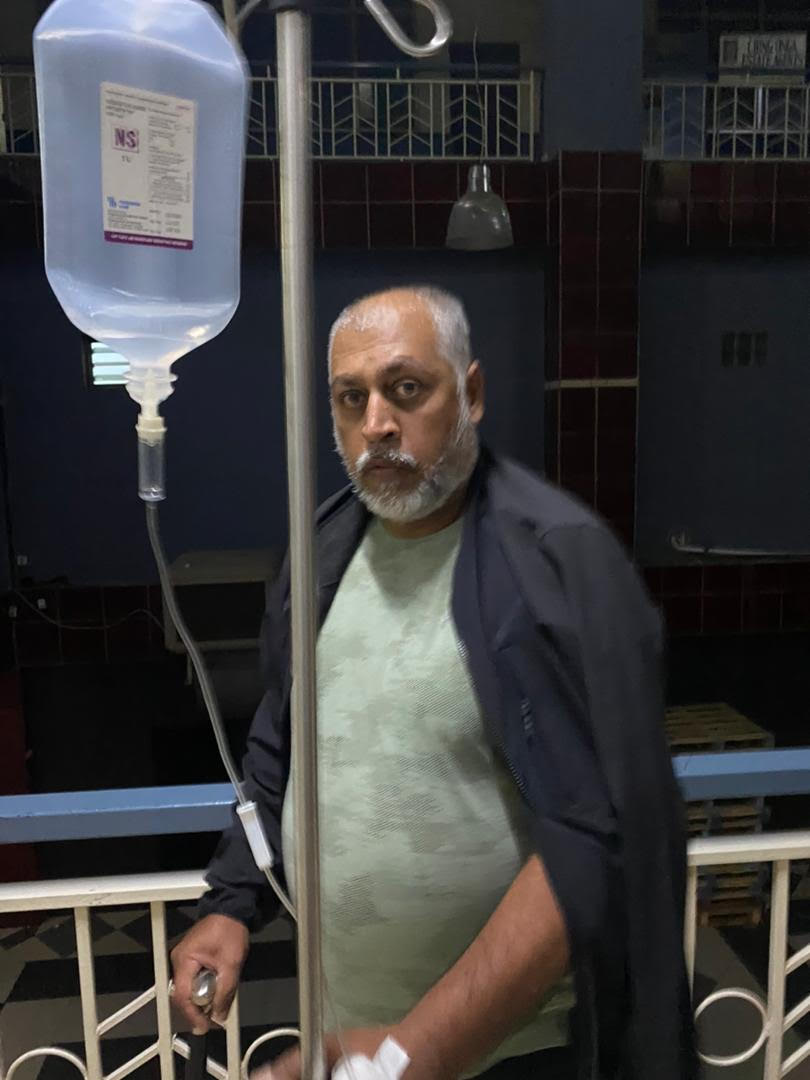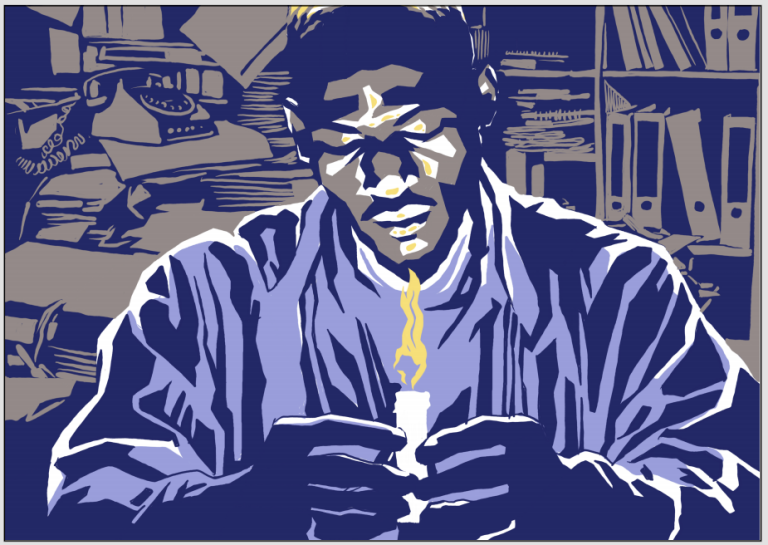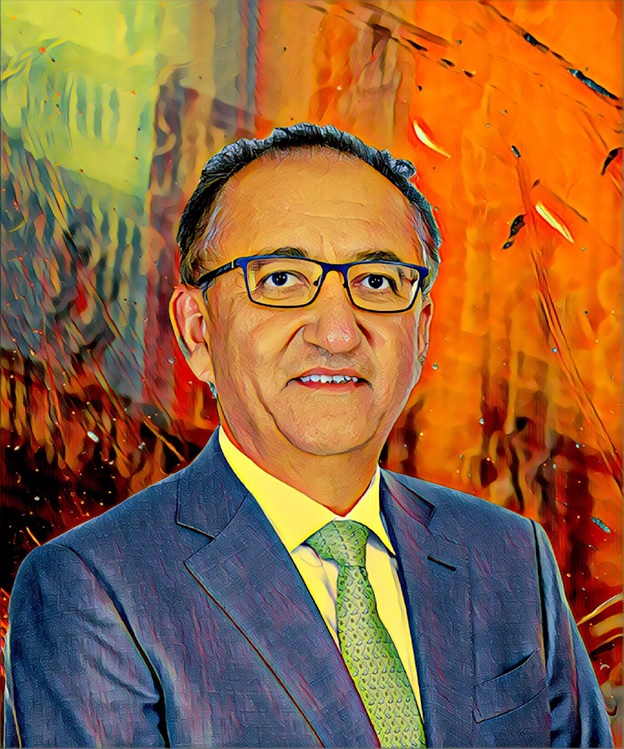BY PIJ INVESTIGATIONS A suspected wildlife smuggler, Nadim Omar, was arrested two Mondays ago. However, instead of spending the night in custody, he was taken to a private hospital, where PIJ surveillance spotted him walking around and meeting people, raising doubts about his supposed illness. An investigation by the Platform for Investigative Journalism (PIJ) has revealed that Omar, a foreigner recently arrested for trading in wildlife products, is staying at a high-end hospital in Blantyre while awaiting trial. His admission has raised concerns that the businessman might be working with authorities to avoid spending a night in a police cell. A police spokesperson could not explain the medical condition that necessitated Omar's admission to the private hospital. Days after his arrest, PIJ’s secret team observed Omar, who was arrested last week alongside five others after a police operation discovered various illegal wildlife products at his house in Limbe, freely walking outside the hospital and meeting people, despite being supposedly ill. Omar was seen by PIJ’s undercover team meeting people, freely walking outside the Shifa Private Hospital in Blantyre. He was not restrained in handcuffs, nor was he constantly supervised by police officers, who were stationed outside the hospital. When confronted by a PIJ investigations team, Omar became agitated and called for the police to remove the journalists from the scene. The incident mirrors a previous investigation by PIJ. In 2024, our investigation revealed how Yunhua Lin, the leader of a notorious Chinese gang convicted of illegally trading in wildlife products from Malawi and other Southern African countries, was secretly allowed to enjoy life outside prison while serving a 14-year sentence. Lin was filmed visiting his home, farm, and shopping centers, prompting authorities to promise an investigation. Several prison officers were interdicted, and the Anti-Corruption Bureau is still investigating the matter. Last week, police arrested Omar, a Canadian national, after one of his workers allegedly stole rhino horns from his house. The worker, along with an associate, attempted to find a market for the horns, but police intercepted the deal. Upon tracing the origins of the horns back to Omar’s home, officers discovered more illegal wildlife products, including elephant tusks. Altogether, six people—Omar Nadim, Lonex Lopanda, Eliza Mpira, Steven Kandoje, Chrissy Dailesi, and Hellen Maunjeni—were arrested. Omar was due to appear in court on Monday, but according to various sources who spoke to PIJ, he never spent a night in police custody. Instead, he was taken to a private hospital under the pretext of illness. Omar Under Watch Omar was arrested on July 30, 2024. The next day, he was admitted to the hospital. A phone operator at Shifa Private Hospital confirmed to PIJ that Omar was admitted on that date. A source immediately tipped off PIJ about the arrangement, and our undercover team placed Omar, identified in the police report as “a Malawian with a Canadian background,” under surveillance. After observing Omar for a few days at the hospital, on Sunday, at around 7:35 p.m., our team approached the suspect for questioning while he was meeting a middle-aged man of Asian origin. Omar was seen walking freely with no visible signs of pain or illness, despite being connected to an IV drip and cannula. When asked by our investigative journalist to confirm his identity as Omar Nadim, he shook his head and denied it. “Are you under arrest or in police custody?” the journalist asked. “I don't know what you are talking about,” Omar responded. “This is harassment,” he bellowed. “You will hear from my lawyers.” Omar then called the police officers stationed outside the hospital to intervene as our team took pictures. “Take this person out of here,” he ordered. The police officer hesitated, unsure of the appropriate response. Our team walked away. The investigation raises questions about the role of private hospitals in determining the fitness of a suspect or convict and the process for admitting a suspect to the hospital before a court appearance. It remains unclear who in the Malawi Police Service ordered Blantyre Police Station to release a suspect to a private hospital. By the time Omar was admitted to the hospital, he had yet to appear before the court, meaning the courts had no say in his release from custody. South West Regional Police Spokesperson Beatrice Mikuwa could not confirm when Omar was admitted to the hospital, the nature of his illness, or the reasons for selecting a private hospital. She said, “It could be because the patient had a medical scheme or medical history that necessitated the use of the hospital.” Jail is for the Poor Reacting to the development, governance advocate and Youth and Society (YAS) Executive Director Charles Kajoloweka said the situation is part of a worrying trend of wealthy individuals manipulating the criminal justice system. “We need to establish a pattern here. Rich people are able to manipulate the criminal justice system. Those with money have the ability to obstruct justice, where corruption and collusion are the order of the day. What is coming out clearly in this case is another instance of collusion to undermine justice. If this is happening at the arrest stage, what will happen during prosecution? Just as in the South African case, the state abandoned the case to connive with the defense, and the senior manager had to recuse himself,” said Kajoloweka. Kajoloweka Kajoloweka further called on the authorities to investigate the matter and end impunity in the criminal justice system. “It is important that relevant stakeholders intervene to stop these cases of impunity. The Complaints Commission, Office of the Ombudsman, and the Bureau should track these matters and take action,” said Kajoloweka. Natural Resources Justice Network (NRJN) Chairperson Reverend McBowan Mulagha, whose organization comprises civil society groups working in the environmental justice sector, called for an official investigation. “We find this deplorable. Shifting their personnel out… We are consulting colleagues to take action. This is very suspicious. Some people in government departments are deliberately frustrating justice. We will not leave any stone unturned until we expose these malpractices,” said Mulagha. While many poor Malawians spend years inside prisons awaiting trial, wealthy individuals rarely stay in prison or police custody, using both legal and questionable means to evade justice. From hiring the best lawyers to engaging in bribery and benefiting from questionable judicial decisions, convicted wealthy individuals have managed to avoid jail, even when found guilty.



.png)



